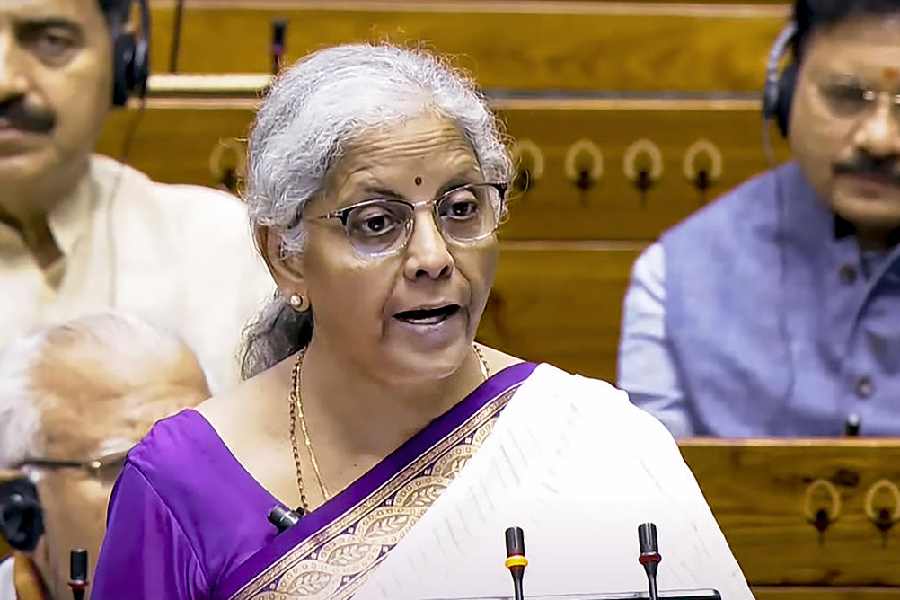The Centre on Tuesday announced the abolition of the angel tax for “all classes of investors” to bolster the start-up ecosystem and promote entrepreneurship.
Angel tax refers to the income tax levied on funding raised or capital received by start-ups on the sale of shares above the fair market value (current value of one share of the company’s total stock). The difference is treated as taxable income.
“To bolster the Indian start-up ecosystem, boost the entrepreneurial spirit and support innovation, I propose to abolish the so-called angel tax for all classes of investors,” Union finance minister Nirmala Sitharaman said in her budget speech.
In Calcutta, start-up founders and investors this newspaper spoke to said the angel
tax system was like a mechanism through which start-ups had to prove that any investment coming into their business was not a profit but an investment.
“The start-ups had to ask angel investors to provide documents regarding the source of income, income-tax returns etc. It was a big harassment. People would refrain from angel funding. Taking it off will bring more investors into the start-up ecosystem,” said Sagar Daryani, founder & CEO of Wow! Momo, which began as a Calcutta-based start-up and now has over 600 outlets in over 30 cities.
Daryani is now an angel investor himself.
The scrapping of the tax will increase investor confidence, said Rajarshi Nag, a founder of Drivers4Me, an app-based driver rental platform that started in 2019 and raised ₹3 crore as seed funding earlier this year.
“The removal of the angel tax will alleviate concerns about additional tax burdens. It will boost investor confidence and willingness to invest in start-ups,” said Nag.
Young start-ups usually find it challenging to handle the tax burden on top of their operational expenses.
Since the angel tax is levied on the premium paid over the fair market value, it often leads to disagreements on valuation between start-ups and the tax authorities. The additional tax burden can also discourage investment, hindering the very innovation and growth that the government wants the start-up ecosystem to foster.
The angel tax came into being with the Finance Bill of 2012, driven by the intent to check the flow of black money into private companies through inflated valuations.
While the angel tax earlier applied only to local investors, the budget for the 2023-24 fiscal widened its ambit to include foreign investments.
More than one start-up founder called the angel tax prohibitive.
“Doing away with the angel tax will allow start-ups to attract more funding.... This move is expected to spur innovation and create jobs,” said Aditya Ladsaria, co-founder of the Chai Break chain. The start-up had in 2018 raised ₹5 crore in angel funding in lieu of a 10 per cent stake.
Aditi Murarka Agrawal, co-founder of Nestasia, a home decor and lifestyle brand whose products are available on online platforms and also retail outlets, said: “The scrapping of the angel tax is a welcome move because it will draw investors, who were earlier sceptical, into the start-up ecosystem.”
“This move will unfetter start-ups in India,” said Padmaja Ruparel, co-founder and president of Indian Angel Network (IAN), a forum of angel investors.
Hiring push
Sitharaman also announced three employment-linked incentive schemes based on enrolment in the Employees’ Provident Fund Organisation (EPFO), as part of the Union government’s efforts to boost hiring.
Scheme A (one month’s salary for freshers), Scheme B (job creation in manufacturing) and Scheme C (support to employers) are designed to benefit first-time employees enrolling in the EPFO.
Daryani said: “This scheme, too, will help us a lot. For 200 stores we intend to open in a year, we would need at least 1,500 people. Out of that, at least 500 will be freshers.”











